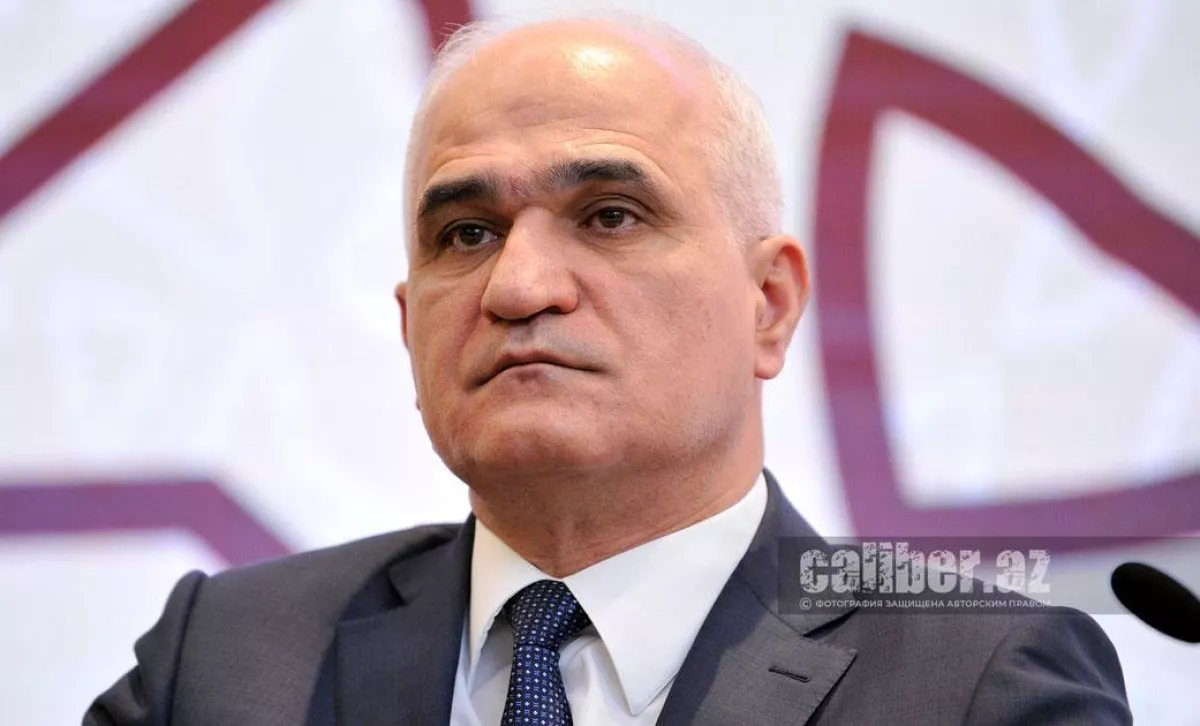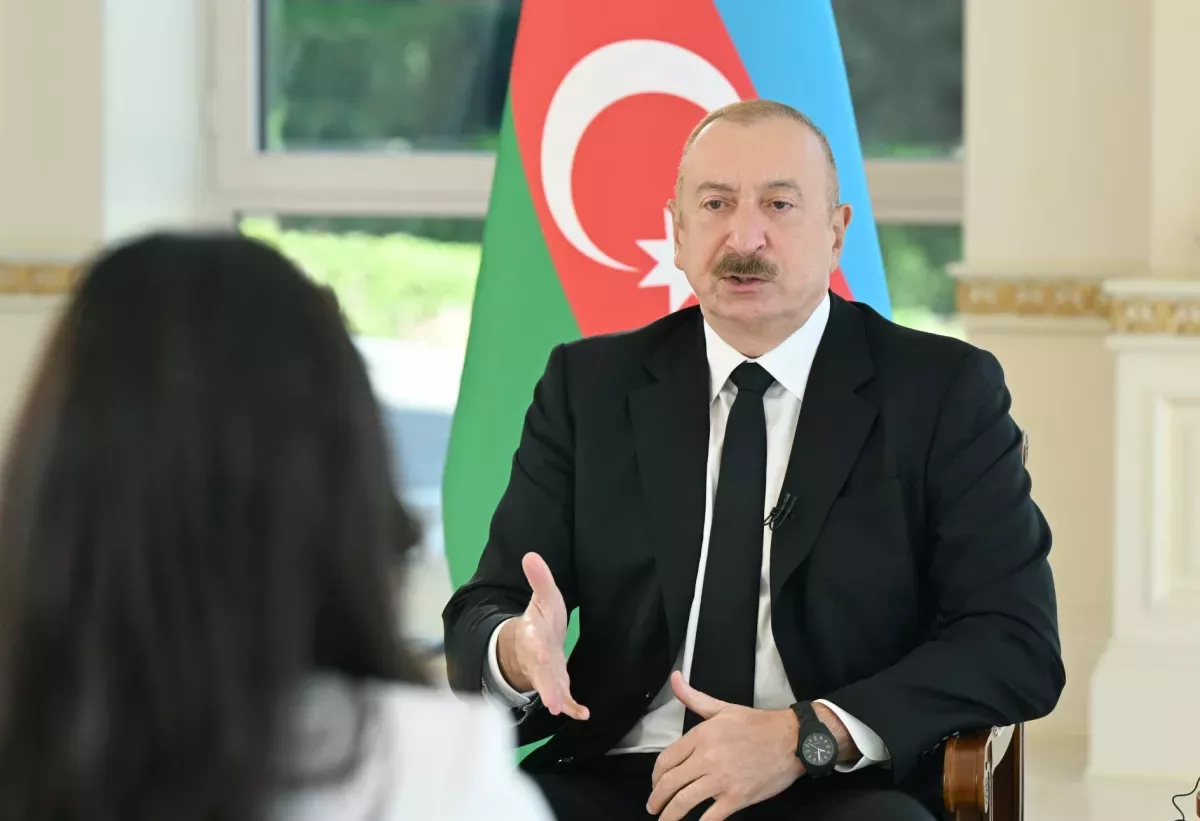Transport leap of the 21st century: Azerbaijan links Europe and Asia Via new logistics artery
In recent years, Azerbaijan has been developing railway and road infrastructure along the Middle Corridor in East Zangazur, aimed at strengthening the country’s position as a regional transport and logistics hub. The agreements on a peace agenda reached on August 8 in Washington between the Armenian Prime Minister and the Azerbaijani President, mediated by U.S. President Donald Trump, as well as the agreement on implementing the “Trump Route for International Peace and Prosperity” (TRIPP) project, have laid the groundwork for the rapid development of a new East-West logistics vector. The opportunities created by the TRIPP project were recently discussed at a special session of the Cabinet of Ministers of Azerbaijan.
In recent years, European countries, Türkiye, China, and Central Asian states have put forward various initiatives to establish transit transport through Azerbaijan as part of the Middle Corridor. This work has been actively progressing, including the combined maritime and railway segment of the corridor—the Trans-Caspian International Transport Route (TITR), which has been in operation for seven years and includes the Baku–Tbilisi–Kars (BTK) railway line.
Considering the rapidly growing volume of East-West cargo traffic, last year Azerbaijan completed the modernisation of the Georgian section of the BTK, increasing its capacity from 1 million to 5 million tons of cargo per year. Meanwhile, the annual cargo handling capacity of Baku port is projected to reach 25 million tons by 2030, and the capacity of its container terminal will increase to 500,000 TEUs.

However, over time, the potential growth of cargo traffic along the Middle Corridor will require even greater handling capacities. That is why, following the victorious 44-day Patriotic War, Azerbaijan initiated the construction of road infrastructure, followed by railway development in the East Zangezur Economic Region.
The construction of the cross-border international Goris–Aghband railway line is financed by Azerbaijan’s budget. To date, 76 km have been laid out of the 110.4 km single-track section passing through the Jabrayil and Zangilan districts, reaching the border settlement of Agbend. The plan envisions extending this railway through Armenian territory into the Nakhchivan Autonomous Republic (NAR), with subsequent connection of the tracks toward Kars in Türkiye.
Following the TRIPP agreement reached in Washington, all these prospects have taken on a concrete form: the outcomes of Azerbaijani President Ilham Aliyev’s historic visit to the U.S. and the transport breakthrough achieved there were summarised during a special government session on Tuesday.
As noted by Economy Minister Mikayil Jabbarov during the Cabinet meeting, the signing of the Agreement on Peace and the Establishment of Interstate Relations between Baku and Yerevan, the stabilisation of regional peace, and the creation of new transport links will open up favourable new opportunities for Azerbaijan’s development.

“Alongside other important issues included in the Joint Declaration, particular significance is attached to provisions on the opening of transport communications in the region: the parties confirm the importance of establishing connections between Azerbaijan and Armenia to facilitate domestic, bilateral, and international transport. To this end, an agreement has been reached to implement the ‘Trump Route for International Peace and Prosperity’ project on Armenian territory,” Vice Prime Minister Shahin Mustafayev stated at the special Cabinet meeting.
He added, “This project is part of a long-term plan initiated by President Ilham Aliyev to ensure the integration of regional transport networks, seamless movement between mainland Azerbaijan and the Nakhchivan Autonomous Republic, and closer integration of Nakhchivan with other regions of our country.”
Shahin Mustafayev emphasized that the new transport corridor passing through Zangezur holds significant potential as a major trade route between East and West, playing a key role in freight transport to Europe and back via China, Central Asia, the Caspian Sea, Azerbaijan, and Türkiye.
The Vice Prime Minister also noted that just a few days ago, construction began on the Kars-Iğdır-Aralık-Dilucu railway line, which will connect Türkiye with Nakhchivan. This 224-kilometre line will provide convenient and fast access to European markets.
Notably, Turkish media previously reported that the project includes the construction of 10 bridges and 144 underpasses, with the Kars–Nakhchivan railway line designed to allow passenger trains to travel at speeds of up to 160 km/h.
“‘The construction of the Kars-Iğdır-Aralık-Dilucu railway will elevate economic cooperation between Türkiye, Azerbaijan, and Armenia to a new level, as well as boost the economic development of Türkiye’s eastern regions, increasing production, exports, and freight transport,’ President of Türkiye Recep Tayyip Erdoğan stated recently during a briefing following a government meeting in the Ahlat district of Bitlis Province.”
The scale of the project underway in Türkiye was highlighted recently by Murathan Kalyoncu, head of Kalyon İnşaat, the company involved in constructing the new railway from Kars to the Azerbaijani border. ‘Up to 10,000 specialists will be engaged in the project, and this “steel” artery will transform eastern Türkiye into the heart of regional and international trade, cutting cargo delivery times between Europe and Asia by almost half,’ Kalyoncu stated. He emphasised that currently only 1% of Türkiye’s foreign trade is conducted via rail, whereas the Kars–Nakhchivan railway will increase this share to 4%. Overall, this segment of the Middle Corridor has higher throughput capacity and, thanks to favourable climate and terrain, will operate year-round, serving as an alternative to existing routes. According to estimates, once opened, the TRIPP route will raise the total throughput capacity of the Middle Corridor to 15 million tons per year.”

Azerbaijani President Ilham Aliyev spoke about the importance of the agreements reached in Washington and the progress made in implementing the TRIPP route in an interview with Al Arabiya, aired on August 26. “So now, when President Trump gave his name to the Zangezur Corridor, I'm sure that it will materialize very soon. RFrom the point of building the physical infrastructure, I mean the railroad, it should not take a long time, because it's only 42 kilometers,” President Aliyev said, noting that American investors could potentially carry out the construction of the railway connecting mainland Azerbaijan with Nakhchivan.
The president added that, thanks to the implementation of this project, Armenia will also be able to receive transit fees from cargo transportation. He further emphasised that, given the year-on-year growth in cargo volumes from Asia to Europe via Azerbaijan, the new corridor will become a key transport link connecting the continents.








